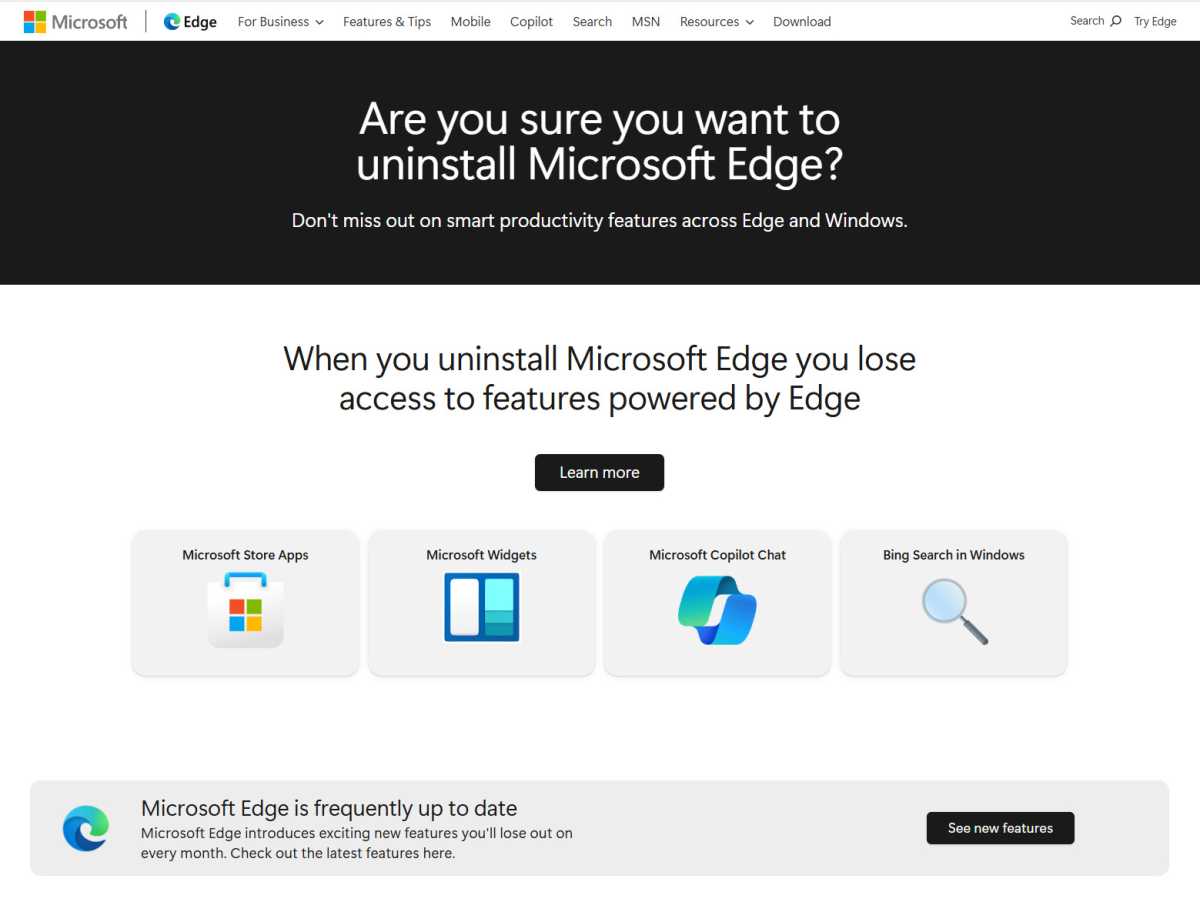Anyone who’s tried to use a non-Microsoft browser on Windows in the last decade knows that Microsoft really, truly, desperately wants you to stick to Edge—and it’s not shocking that some of the competition is taking it personally. Opera, both the Norwegian company and the browser, decided to take US-based Microsoft to court… in Brazil.
Opera issued an official complaint to the Administrative Council for Economic Defense (Conselho Administrativo de Defesa Econômica in Portuguese, CADE for short) that Microsoft is engaging in anti-competitive practices, limiting user choice by putting unreasonable roadblocks in front of those who want to get off the Edge default. That’s on top of pre-installing the browser in the operating system itself, which Opera contends is an unfair advantage.
I Am Not A Lawyer, and I’m absolutely not a Brazilian lawyer, but I’d say that pre-installing a web browser is kind of a moot point in 2025. Most users would expect to be able to browse the web after they bought a new device, whether it be a laptop, a phone, or a game console. Opera itself includes built-in tools like a paid VPN, and I bet that Nord (for instance) would love to be able to offer its competing service on that screen. But Opera is on firmer footing when it comes to Microsoft’s unreasonable and nagging attempts to keep users on Edge, or sneakily switching them back to the default after they’ve installed an alternative.
We’ve documented Microsoft’s various annoyances in this area here at PCWorld. On top of making Edge almost impossible to remove from Windows (except in Europe, where it’s been forced to offer that), Windows itself will ignore the default when performing searches from the Start menu or opening web links from widgets. Various pop-ups and banners will beg you to switch back. Windows will reset your default browser settings after major updates without making it obvious. Some Microsoft programs will simply not work without it. And even searching for Chrome in Edge’s default Bing search will redirect you to what’s basically an ad for Edge.

Microsoft
I’d be remiss not to note that, despite Opera’s lofty claims that “the fight for digital freedom is global” and that it’s working “on behalf of the many millions of Brazilian users who are being denied genuine choice,” this is essentially one company using a government to fight another beyond the market. Opera is hardly a consumer champion, and since it’s sitting at just under 2 percent global market share compared to about 5 percent for Edge, it’s clear that both of them need to fight Google’s Chrome and Apple’s Safari if they want to compete more effectively.
Opera is asking Brazil’s CADE to investigate Microsoft and “impose remedies to ensure fair competition,” including an end to the blocks and browser nagging in Windows and allowing PC manufacturers to pre-install alternate browsers and set them as default. Whether or not CADE will do so, and by what administrative tools, is hard to know.
Microsoft is no stranger to government-imposed restrictions on its browsers. In addition to being forced to allow Windows users to uninstall Edge in Europe, Microsoft infamously ran afoul of anti-competition rules in both the US and Europe with its predecessor Internet Explorer. The company has been fined hundreds of millions of dollars for anti-competitive actions in the browser space alone, and for years Windows was forced to offer a “ballot box” of browser alternatives in Europe. Now that Google is the dominant force in the browser space, it’s facing similar regulatory issues.
Zaloguj się, aby dodać komentarz
Inne posty w tej grupie

One of the phenomena triggered by the AI boom in recent years is deep

TL;DR: Save big on a powerful, professionally refurb

An executive order by President Trump will eliminate the de minim

Google has fixed several vulnerabilities in Chrome versions 138.0.720


When you’re out and about in the city, a regular power bank can serve

